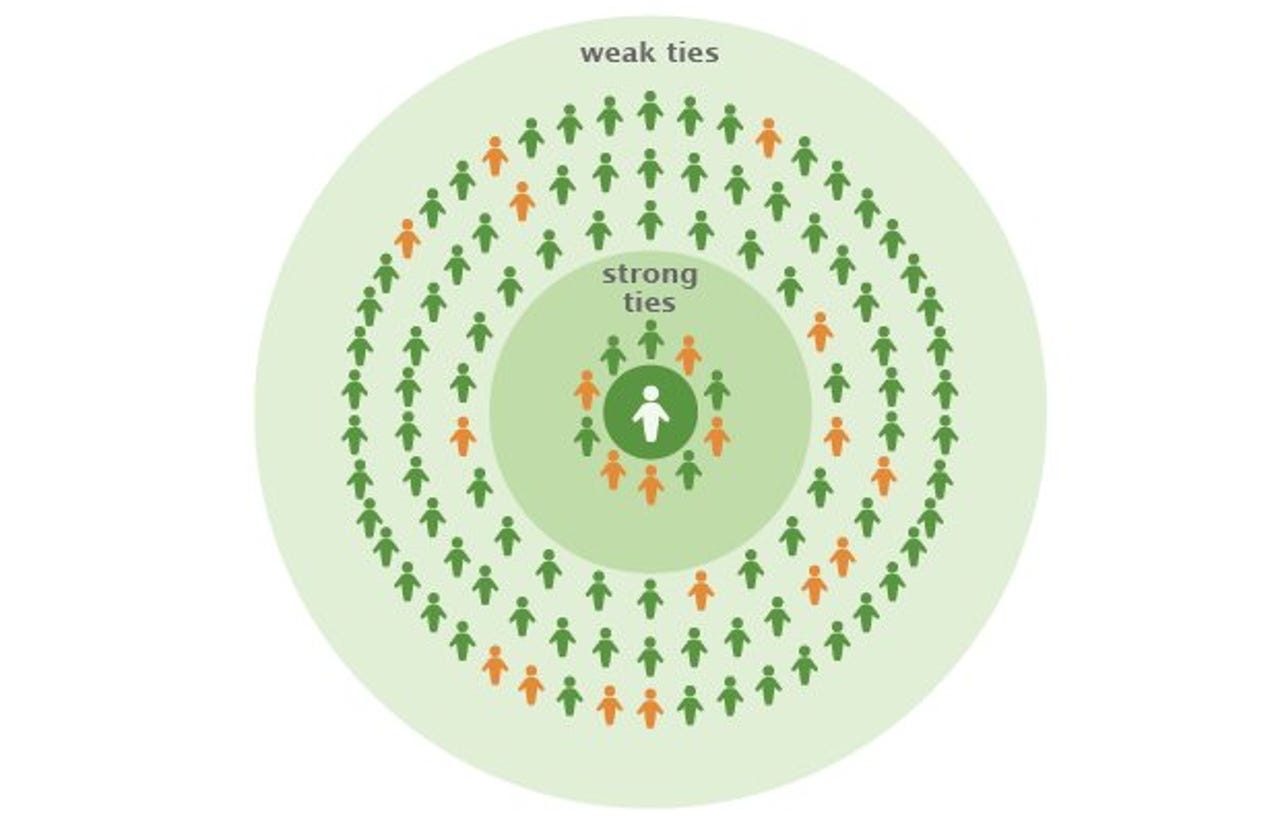Facebook is more than an echo chamber, according to Facebook

In 2010, four Facebook employees conducted a study to understand the nature of how information spreads on the social network. Eytan Bakshy, Itamar Rosenn, Cameron Marlow, and Lada Adamic found that Facebook isn't just an echo chamber in which people only consume and share information from likeminded close friends. While a lot of Facebook time is dedicated to communicating with close friends about events in your personal life, the typical user also use the service to share breaking news, discuss political issues, and learn about new trends.
Even though people are more likely to consume and share information that comes from close contacts that they interact with frequently, the four researchers found the vast majority of information comes from contacts they interact with infrequently. These distant contacts are also more likely to share novel information, such as new ideas, new products, and current events. Facebook summarized the study in three points:
- People are more likely to share information from their close friends on Facebook, but because of their abundance, distant contacts are primarily responsible for the majority of information spread on Facebook.
- Since these distant contacts tend to be different from us, the majority of information we consume and share on Facebook comes from people with different perspectives and is thus novel.
- This research is among the first to rigorously quantify influence at a mass scale, and demonstrates that social networks can act as a powerful medium for sharing new ideas, highlighting new products and discussing current events.
The researchers used random variation in the News Feed to determine how likely a person is to share Web content if he or she did not see it shared by his or her friends. Unsurprisingly, people are more likely to share the information they were exposed to by their strong ties than by their weak ties on Facebook. One reason for this is that close contacts are more likely to be similar to one another, and therefore find content shared by their close friends more interesting. Alternatively, strong ties are more "influential", meaning people are more likely to be persuaded to share information from their close contacts.
The researchers also looked at how Facebook amplifies information distribution. If a friend shares something on Facebook, how many times more likely are you to share that information as a result of seeing it in the News Feed? Weak ties spread novel information that people are unlikely to otherwise see and information shared by a person's weak ties is unlikely to be shared at a later point in time independently of those friends.
Therefore, seeing content from a weak tie leads to a nearly tenfold increase in the likelihood that a person will share a link. In contrast, seeing information shared by a strong tie in News Feed makes people just six times as likely to share. Weak ties thus have the greatest potential to expose their friends to information that they would not have otherwise discovered. Furthermore, it turns out weak ties are collectively responsible for the majority of information spread. You can see in the figure above how a majority of influence (orange) can be generated by weak ties, even if strong ties are individually more influential.
"The information we consume and share on Facebook is actually much more diverse in nature than conventional wisdom might suggest," a Facebook spokesperson said in a statement. "We are exposed to and spread more information from our distant contacts than our close friends. Since these distant contacts tend to be different from us, the bulk of information we consume and share comes from people with different perspectives. This may provide some comfort to those who worry that social networks are simply an echo chamber where people are only exposed to those who share the same opinions. Our work is among the first to rigorously quantify influence at a mass scale, and shows that online social networks can serve as an important medium for sharing new perspectives, products and world events."
See also:
- Your Facebook personality is genuine (study)
- Why Facebook users friend and unfriend (infographic)
- 85 percent of women are annoyed by their Facebook friends
- More friends equals more stress on Facebook
- British Facebook users are drunk in 76% of their photos
- Facebook users now separated by 4.74 degrees
